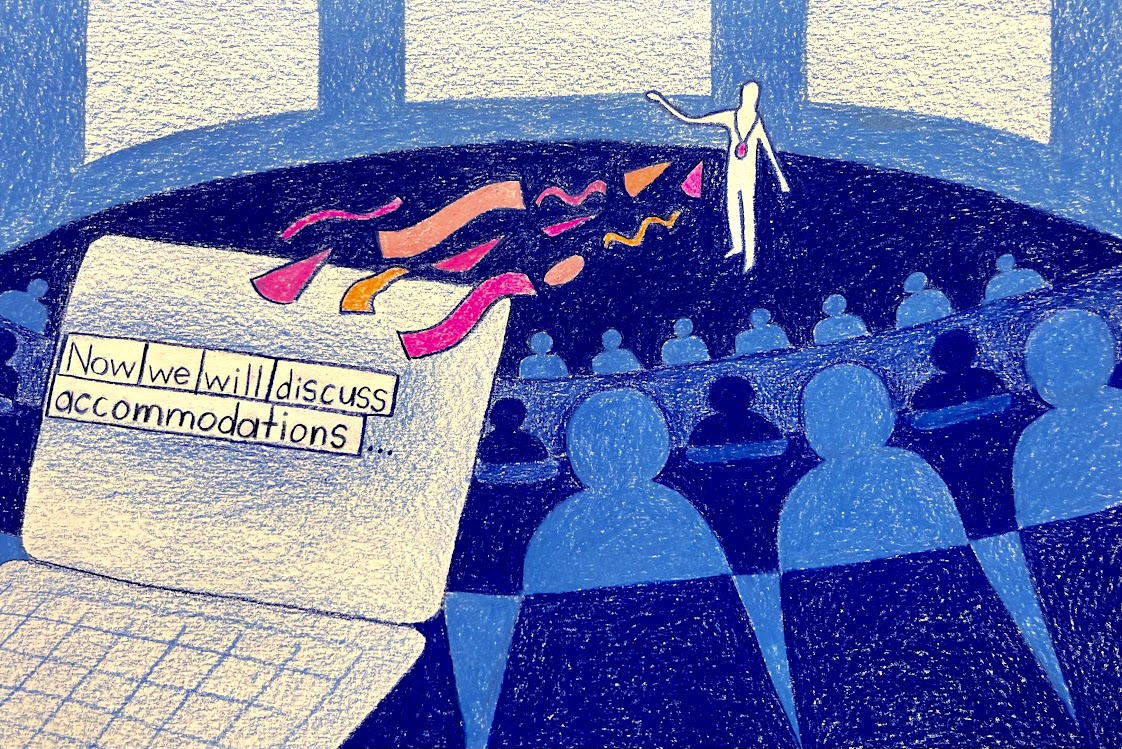Disabilities are often avoided topics since peers may fear being offensive or disrespectful about things they don’t fully understand. Avoidance may seem like the easier route, but it ultimately ostracizes individuals with disabilities.
“I think a lot of (avoidance) does come from a well-intentioned place of not wanting to be offensive, or make someone feel uncomfortable, but in doing that, it ends up creating that uncomfortable space oftentimes,“ said social work graduate student Dana John.
While the lack of education on disabilities and disability culture is a clear issue, we must face it head-on rather than giving in to anxiety or fear. By acknowledging that they may not always be well-informed, students can step out of their comfort zones to welcome students with disabilities.
“How would you talk to your friend? And then you find out they have a disability. Does that change anything?” said Nick Winges-Yanez, a clinical assistant professor of instruction at the Steve Hicks School of Social Work. “Be open and honest and be prepared to be wrong. And that’s fine, to be wrong. … I think that’s the thing, people are so afraid of being wrong. … It’s way worse to ignore them, or exclude them.”
While it might be anxiety-inducing, talking things out is the easiest way to engage with this topic. No one expects you to completely understand every disability. The willingness to start the conversation is what matters.
Furthermore, remember that individuals with disabilities often need accommodations in their day-to-day life. This means that those around them must also be willing to accommodate, and varying accommodations make these discussions all the more necessary.
“And no matter if you’re interacting with someone that you know has a disability or someone that you don’t know at all,” John said. “That’s a question that I don’t think is ever bad to ask. It’s just like, ‘Is there anything that you need that would be helpful for you right now?’”
Making an intentional effort can be as simple as listening and accommodating.
“So when someone comes and talks to you about, ‘I have this disability, I have this need,’ we need to be willing to listen, respond,” said Joe Tate, program manager of E4Texas, a post-secondary opportunity for people with or without a disability. “And if there’s some kind of breakdown of understanding, we need to be willing to modify how we’re communicating. … People who are not used to being around disability every day, they’re really unwilling to modify their communication strategies to ensure that everybody is included and everybody is feeling heard.”
To approach someone respectfully, reframe how you think about disabilities and individuals with disabilities. Often, individuals with disabilities are far more comfortable on the topic, having lived their whole lives with their disability. What’s new to you is likely not new to them, and as long as you genuinely consider what they share and maintain a willingness to listen, you aren’t doing anything wrong.
“You don’t assume. When you assume, you put yourself in a corner like, ‘oh, maybe they don’t want to talk to me’ or ‘maybe they do not feel comfortable,’” said Qusay Hussein, a social work PhD student. “You don’t know. Ask first and see if that person would like to talk to you or help you or work with you or even ask them a question. But unfortunately, in our society right now, we assume so much that we even lost this trust.”
Avoiding predispositions is necessary for creating a welcoming environment. Likewise, discarding value judgments and assumptions is necessary for normalizing conversations on disabilities.
Rail is an English second-year from El Paso, Texas.















